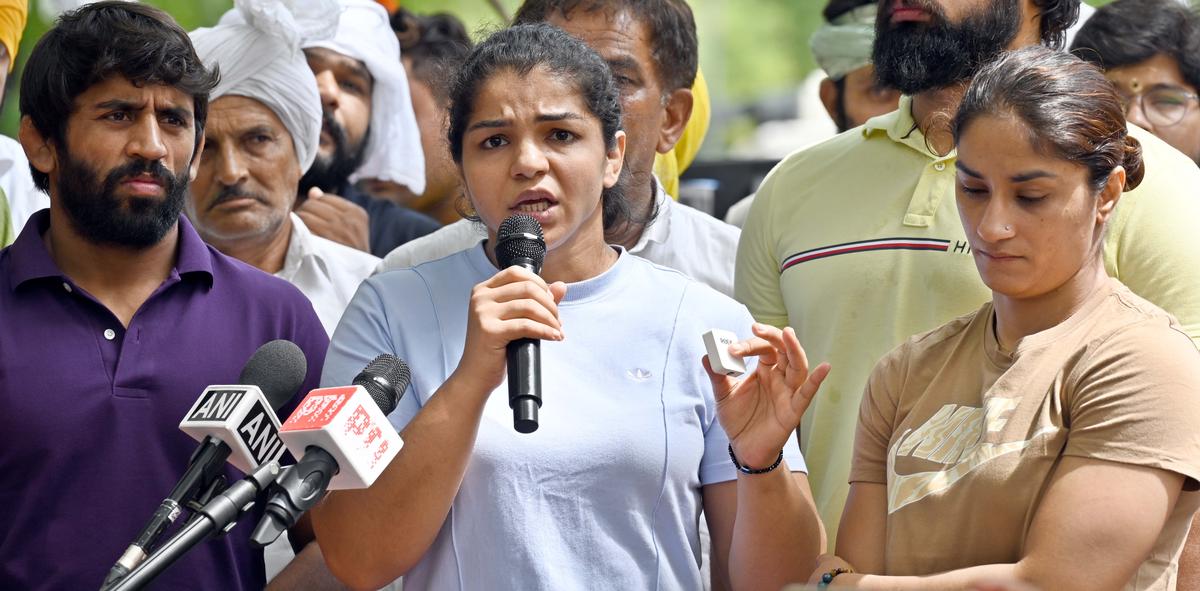Governance Bill
Overview: On Wednesday, July 23, 2025, the National Sports Governance Bill, 2025, was introduced in the Lok Sabha just before a brief adjournment due to Opposition protests. This Bill is part of eight proposed legislations aimed at regulating sports administration in India. It proposes the establishment of a National Sports Board (NSB) to oversee all sports federations, including the Board of Control for Cricket in India (BCCI), which is the most lucrative sports body in the country.
Union Sports Minister Mansukh Mandaviya stated he conducted extensive consultations with National Sports Federations (NSFs), athletes, and coaches, gathering 600 public inputs during the draft’s online suggestion phase. He also noted that international organizations like the International Olympic Committee (IOC) and FIFA contributed to the Bill’s formulation.
However, the BCCI and the Indian Olympic Association (IOA) have voiced opposition due to concerns regarding the infringement of their autonomy.
Here’s a detailed breakdown of the Bill’s provisions and the areas of contention:
National Sports Bodies
Recognized sports organizations will be regulated by new national governing bodies like the National Olympic Committee, National Paralympic Committee, and various National and Regional Sports Federations for respective sports. Each federation will gain international recognition from its corresponding international governing body.
Furthermore, these national sports bodies will include a General Body, a 15-member Executive Committee (with at least four women), an Ethics Committee, a Dispute Resolution Committee, and an Athletes Committee. Elections to the Executive Committee will be held every four years, and candidates must be Indian athletes aged between 25 and 70 years. Those aged between 70 and 75 may contest if allowed by local rules, and government employees can seek election with prior approval.
National Sports Board (NSB)
The NSB will be established with the authority to recognize, suspend, or revoke registrations of sports organizations. Its responsibilities include (i) investigating issues related to athlete welfare, sports development, and the misuse of public funds, (ii) providing ethical guidelines for sports bodies, (iii) creating a Safe Sports Policy focused on the safety of women and youth athletes, and (iv) maintaining the roster of the National Sports Election Panel, overseeing fair elections within sports federations.
The NSB will also work with both national and international sports organizations to ensure adherence to global standards and protect athletes’ rights. It retains the authority to revoke recognition of any sports body that loses its international standing, violates the law, fails to hold elections, or misuses public funds. Recognition is contingent upon being a registered society, a not-for-profit corporation, or a registered trust.
The government has the power to appoint personnel to perform the NSB’s functions.
Election Panel and Tribunal
A National Sports Election Panel will be formed, consisting of retired Chief or State Election Commissioners and other election officers, with each sports organization required to appoint an electoral officer from this panel to supervise its elections.
A three-member National Sports Tribunal, headed by a former High Court or Supreme Court judge, will be established to facilitate ‘independent, timely, and cost-effective’ resolution of sports disputes. The tribunal will have civil court-like powers, including the ability to summon individuals, request evidence, and obtain records. Civil courts will not have jurisdiction over matters managed by the Tribunal. All disputes involving National Sports Bodies currently in District or High Court will be transferred to the Tribunal by a date determined by the Centre.
However, the Tribunal will not handle disputes during events governed by International Federations, such as the Olympics or Commonwealth Games, nor on matters managed by the internal dispute committees of individual sports bodies, other tribunals, or international sports federations. Doping disputes and matters related to International Charters and Statutes fall outside its jurisdiction. Verdicts can be appealed to the Supreme Court within 30 days.

File photo of wrestlers Vinesh Phogat, Sakshi Malik, and Bajrang Punia during their protest against Wrestling Federation of India chief Brij Bhushan Sharan Singh, at Jantar Mantar, on May 28, 2023. | Photo Credit: Getty Images
Additional Key Features
All sports organizations recognized by the NSB will be classified as public authorities under the Right to Information Act, 2005 regarding their operational functions and responsibilities.
Organizations wishing to use “India,” “Indian,” or any national insignia in their name or branding must secure no-objection certification from the Centre. If a sports body’s registration is suspended or canceled, it cannot use the name “India” or any state or district names, nor can it conduct sports trials or events.
The Board will be responsible for maintaining financial records and preparing annual statements subject to auditing by the Comptroller and Auditor-General of India as deemed necessary.
The Centre will have broad authority to establish election rules for various sports bodies, determine Board membership, ensure athlete protection measures, and set the powers and functions of the Board, including member eligibility and responsibilities. It is also authorized to relax eligibility criteria and impose restrictions on national team participation in international competitions for reasons of national security or public order.
Actions undertaken in ‘good faith’ by the Board, NSB, or Tribunal, along with their employees, will be safeguarded from legal actions.
Published – July 31, 2025 09:37 am IST
Original Source – Full Article
Need help or have questions? Contact Us




















